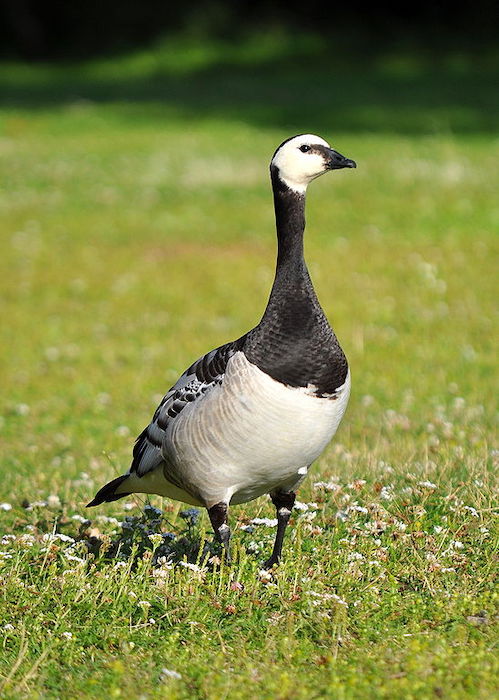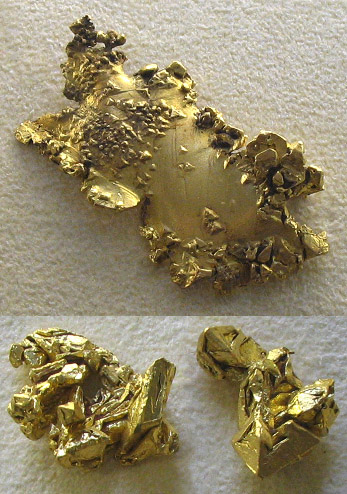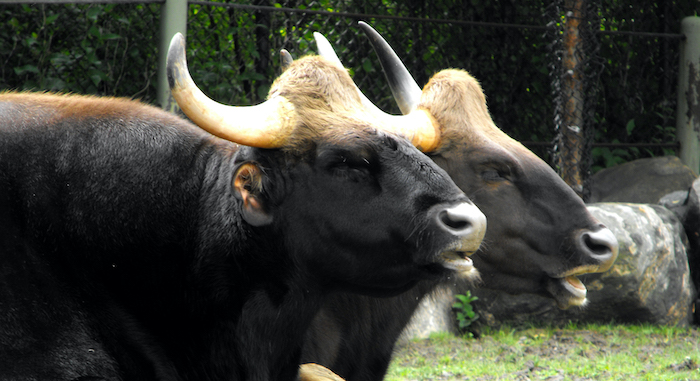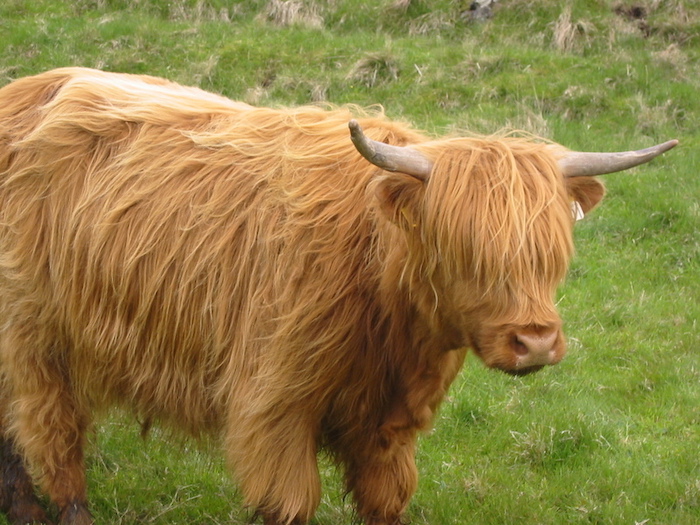Date: Thu 22 Aug 2013
Matching Commentaries:
Commentary for Exeter Riddle 12
This week’s translation is a guest post from the enigmatic Cameron Laird. Cameron is PhD student at the Centre for Medieval Studies, University of Toronto, where he is working on a thesis about this very riddle collection! Stay tuned for his commentary in the next post.
Original text:Fotum ic fere, foldan slite,
grene wongas, þenden ic gæst bere.
Gif me feorh losað, fæste binde
swearte Wealas, hwilum sellan men.
5 Hwilum ic deorum drincan selle
beorne of bosme, hwilum mec bryd triedeð
felawlonc fotum, hwilum feorran broht
wonfeax Wale wegeð ond þyð,
dol druncmennen deorcum nihtum,
10 wæteð in wætre, wyrmeð hwilum
fægre to fyre; me on fæðme sticaþ
hygegalan hond, hwyrfeð geneahhe,
swifeð me geond sweartne. Saga hwæt ic hatte,
þe ic lifgende lond reafige
15 ond æfter deaþe dryhtum þeowige.
Translation:I travel on feet, tear the ground,
the green fields, while I bear my spirit.
If life leaves me, I bind fast
swarthy slaves, sometimes better people.
5 Sometimes I give drink to a brave man
from my breast; sometimes a bride treads on me
so proudly with her feet. Sometimes a dark-haired
slave girl brought from far away clutches and crushes me;
the dim drunken maid in dark nights
10 wets me in water, sometimes warms me
pleasantly by the fire. A lustful hand
shoves me to a bosom, turns just enough,
and touches me throughout the dark. Say what I am called,
who, living, ravages the land
15 and after death serves men.
Click to show riddle solution?
Ox, Ox-hide, Leather (object), etc.
Notes: This riddle appears on folios 103v-104r of The Exeter Book.
The above Old English text is based on this edition: Elliott van Kirk Dobbie and George Philip Krapp, eds, The Exeter Book, Anglo-Saxon Poetic Records 3 (New York: Columbia University Press, 1936), page 186.
Note that this edition numbers the text Riddle 10: Craig Williamson, ed., The Old English Riddles of the Exeter Book (Chapel Hill: University of North Carolina Press, 1977), page 74.
Tags:
anglo saxon
exeter book
riddles
old english
solutions
riddle 12





Commentary for Exeter Riddle 9
MEGANCAVELL
Date: Tue 09 Jul 2013Matching Riddle: Exeter Riddle 9
This post once again comes to us from Jennifer Neville. Enjoy!
However you look at it, Riddle 9 is a sad story. On the surface, it’s the story of a monster-child, a revenant who rewards a well-meaning foster-mother with the murder of her beloved children. Most readers don’t worry too much about that monster, though; already primed to recognise anthropomorphism when they see it, they interpret that loyal kinswoman as a hapless bird that’s had the ill-fortune of a visit from a cuckoo. We are less familiar with cuckoos than we used to be, and so the ornithology may not be more mysterious now than it was during the early medieval period.
Drawing of a cuckoo from Wikimedia Commons (public domain).
The basic scenario is this: some—not all—cuckoo species do not care for their own chicks. Instead, they lay their eggs one by one in the nests of other birds and leave foster-parents to feed and protect them. When they hatch, these chicks are often bigger than their "brothers and sisters," and they often hatch first. They are not only bigger and earlier, however; they are also louder. In fact, one cuckoo chick on its own makes as much noise as a whole brood of ordinary chicks. Unsurprisingly enough, the most demanding chick wins the most attention, and the most food, from its hard-working parents. The usurper also sometimes tries to edge the other chicks out of the nest; even worse, parent birds finding their own chicks perched precariously on the edge sometimes mistake them for outsiders and finish the job themselves. As a result, once mature enough to fly away, the cuckoo chick leaves its foster-parents with smaller or fewer offspring of their own, or even none at all.
The story is tragic, yet the Old English riddle restrains itself strictly to the cuckoo-chick’s point of view: we hear plenty of praise for the generous mother-bird who is so helpful to the growing parasite, but no sorrow at all for her or for her dead babies, only a classically wry comment that there were fewer of them as a result of their mother’s generosity.
That may be all that is needed to be said. Certainly the natural history of the cuckoo was (and is) interesting enough in its own right (see Bitterli for the literary tradition surrounding the cuckoo). Yet there’s an emotional charge here, despite—or perhaps because—of the poet’s restraint. We aren’t told about the weeping mother, but she’s still there, lurking inside the anthropomorphised bird. And so I wonder whether this riddle might also be seen as a commentary on the social institution of fostering: the custom, particularly among noble families, of sending children to be raised in other households or courts. Beowulf seems to have benefitted, for example, from being raised in the household of his grandfather, King Hrethel (Beowulf, lines 2428-34). In his case, the system seems to have been mutually beneficial: the fosterling maintained a staunch loyalty for the family in which he was brought up, fighting bravely on Higelac’s behalf throughout his kingship and then supporting the rule of Higelac’s young son, Heardred, even though the queen offered him the kingship. Yet it is easy to imagine that the system might not always have worked so well. What if the visiting prince used up more than his fair share of scarce resources? What if he entered into competition with his foster-parents’ children? What if he "accidently" killed them in a "friendly" duel? The riddle presents precisely the sorrowful outcome that might come out of honourably fulfilling the obligations of fosterage, if one were unfortunate enough to be cursed with a "cuckoo chick".
A cuckoo chick and crow from Wikimedia Commons (licence: CC BY-SA 4.0).
Again, that may be all that is needed to be said. It’s worth noting, however, that Riddle 9 neither begins nor ends with an explicit riddling tag, and that the absence of solutions in the manuscript means that there is always the possibility that we should carry on with the interpretive process. After all, we have in the manuscript three entries from the Physiologus: descriptions of animals that lead to allegorical readings. And, in fact, Riddle 9’s narrative can be translated into a story that might have been useful for preachers. Thus the mother bird can be seen as the soul living in the world (souls are often represented as birds). Her "offspring" are her good thoughts, stored in the nest of her heart. Too often, however, the devil (the cuckoo) insinuates himself (or, strictly speaking, herself) into that heart and leaves behind a sinful thought that grows ever larger, more attractive, and more demanding until those other nest-mates dwindle and disappear. The end result, once again, is dryly understated: the absence of good thoughts ultimately means eternal damnation.
As I’ve already said, there is no need in Riddle 9 for an allegorical reading or for social commentary. On the other hand, there is no reason why these things should not be there: Riddle 43 contains an allegory of body and soul, and several of the riddles include considerations of social roles (see, for example, Riddle 20, in which the sword reflects on its relationship with its lord). With no prologue, instructions, or solutions, Riddle 9, like all the Exeter Book riddles, invites a plethora of interpretive strategies. More importantly, it rules none out.
References and Suggested Reading:
Bitterli, Dieter. “The Survival of the Dead Cuckoo: Exeter Book Riddle 9.” In Riddles, Knights and Cross-dressing Saints: Essays on Medieval English Language and Literature. Edited by Thomas Honegger. Variations, vol. 5. Bern: Peter Lang, 2004, pages 95-114
Neville, Jennifer. “Fostering the Cuckoo: Exeter Book Riddle 9.” The Review of English Studies, vol. 58 (2007), pages 431-46 [the full text of this article, among others, is available on Jennifer’s university webpage]
Tags: anglo saxon exeter book riddles old english solutions riddle 9 jennifer neville
Related Posts:
Exeter Riddle 9